A urinary tract infection (UTI) is an infection in any part of your urinary system, including the kidneys, bladder and urethra.
If you’re a woman, the chances are, you’re aware of UTIs – even if you’ve never suffered one.
That’s because, while men can get UTIs, it’s far, far more common in women. According to some experts, one in every two women is at risk of getting at least one UTI in their lifetime!
One in five between the ages of 20 and 65 will suffer at least one attack each year. Many women even have repeat infections that can continue for years at a time.
These bacterial infections (up to 90% of which are caused by the E. coli bacteria) are usually uncomfortable, often painful and sometimes even downright embarrassing.
Whether you want to ensure you never have to experience one, or you’re one of the unlucky few who have recurrent infections, here are some ways to treat and prevent UTIs through diet.
Symptoms of a UTI
 Firstly, how do you know if you have a UTI?
Firstly, how do you know if you have a UTI?
If any of these symptoms sound familiar, then you may have one:
- A persistent need to urinate
- A burning sensation when urinating
- Frequent, small amounts of urine
- Cloudy urine
- Blood in the urine
- Strong-smelling urine
- Pelvic pain
Pretty unpleasant sounding, isn’t it? So let’s take a look at what you should and shouldn’t eat to help beat these nasty infections.
What to Eat
Here are some of the most helpful things UTI sufferers should be eating and drinking!
Water
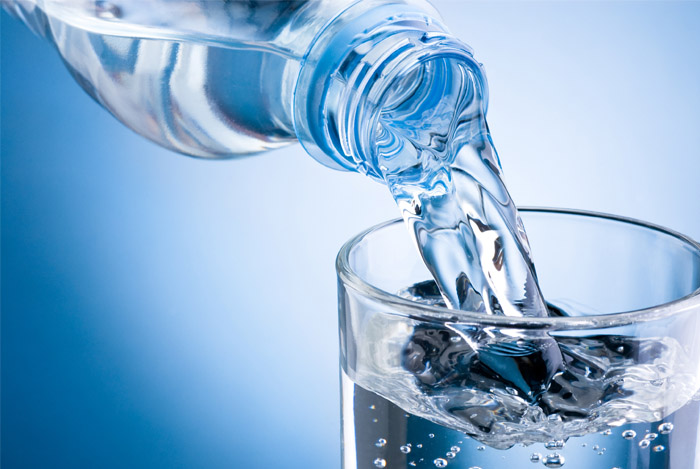 The benefits of drinking water should not be underestimated. Water is vital for so many aspects of our health, in particular our kidney and urinary tract health.
The benefits of drinking water should not be underestimated. Water is vital for so many aspects of our health, in particular our kidney and urinary tract health.
When you’re suffering from a UTI, drinking enough water helps to flush bacteria from your bladder and urinary tract. It’s also one of the best ways to prevent a UTI from developing.
Vitamin A Rich Foods
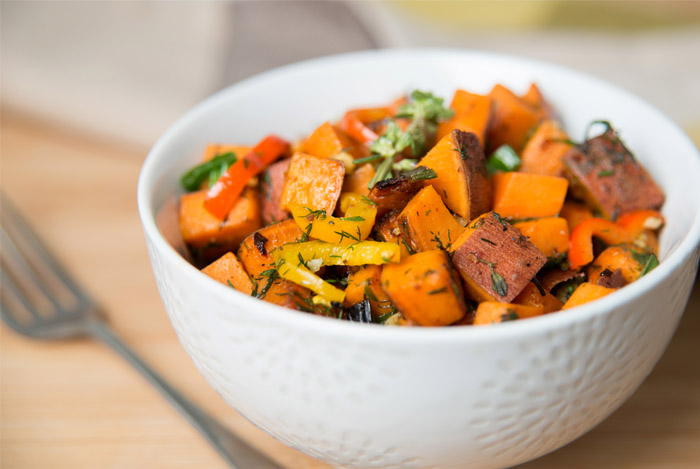 Vitamin A is important for healthy eyesight, a well-functioning immune system and reproductive system. It also helps organs like the heart, lungs and kidneys function correctly.
Vitamin A is important for healthy eyesight, a well-functioning immune system and reproductive system. It also helps organs like the heart, lungs and kidneys function correctly.
Now, studies have shown that vitamin A may help reduce the risk of recurrent UTIs.
One such study involved twenty-four patients with recurrent urinary tract infections. They were divided into two groups with one group receiving a single dose of 200,000 IU of vitamin A in addition to antimicrobial treatment. The other received a placebo.
After six months, those in the vitamin A group suffered an average of 0.75 infections per six months (compared with an average of 3.58 infections per six months before treatment). The placebo group saw almost no change in the amount of infections they suffered.
They’re convincing results aren’t they?
We can get vitamin A from the following foods:
- Sweet potato – one medium contains 438% of your recommended daily value (RDV)
- Carrots – one large contains 241% RDV
- Kale – one cup chopped and uncooked contains 206% RDV
- Cantaloupe melon – one cup, balled contains 120% RDV
- Red bell peppers – one large contains 103% RDV
- Apricots – one cup, sliced contains 64% RDV
While you can also take supplements, the good thing about getting vitamin A from foods is that we don’t have to worry about suffering toxic side-effects from excess vitamin A, which is a concern when taking supplements.
If you are going to supplement, always follow the recommended dose on the label.
Vitamin C Rich Foods
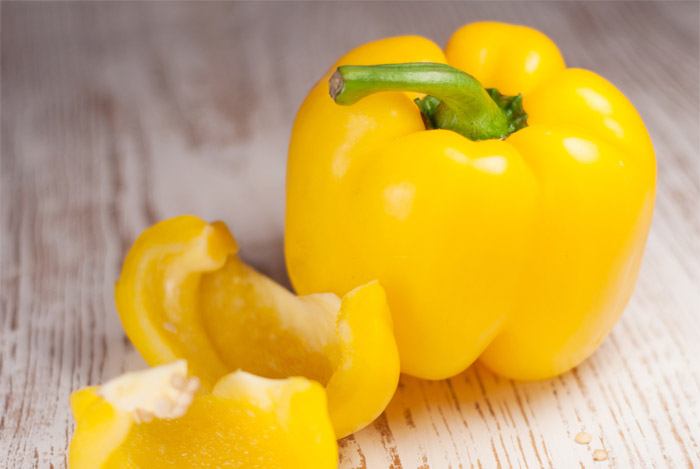 Consuming large amounts of vitamin C can stop the growth of some bacteria by causing the urine to become more acidic, says John Hopkins Medicine.
Consuming large amounts of vitamin C can stop the growth of some bacteria by causing the urine to become more acidic, says John Hopkins Medicine.
Vitamin C is also a potent antioxidant that can fight inflammation and help boost your immune system so you can keep these bacterial invaders at bay.
Some foods high in vitamin C include:
- Yellow bell peppers – one contains 569% RDV
- Red bell peppers – one contains 317% RDV
- Guava – one fruit contains 209% RDV
- Broccoli – one medium stalk contains 195%
- Papaya – one cup of cubes contains 144%
- Kale – one cup chopped contains 134% RDV
Acidic fruits like oranges, grapefruit, lemons and limes all contain vitamin C so feel free to enjoy those as part of a balanced diet to try prevent another UTI.
However, if you’re already suffering with one, they may further irritate your already sensitive bladder. Get your vitamin C from the sources listed above instead.
Cranberries
 Cranberry juice has been found to be particularly effective in preventing UTI recurrence as it’s rich in flavonols, including one called epicatechin.
Cranberry juice has been found to be particularly effective in preventing UTI recurrence as it’s rich in flavonols, including one called epicatechin.
Epicatechin actually prevents bacteria like E. coli from attaching to human cells, meaning they are flushed out of the body before they cause an infection.
Researchers report that cranberry juice can help prevent bacteria from developing into an infection in the urinary tract, within just eight hours of drinking it.
However, most store-bought cranberry juices – like a lot of fruit juices – are filled with sugar. Make sure you buy unsweetened juice or eat whole cranberries.
Blueberries
 Blueberries are a tasty superfood that can help you in your fight against UTIs.
Blueberries are a tasty superfood that can help you in your fight against UTIs.
These tiny berries contain the same compounds as cranberries that work to prevent bacteria from sticking to cells in the urinary tract.
Blueberries can help in another way too. They’re loaded with antioxidants that may help calm the inflammation you’re experiencing in the urinary tract and bladder.
Tests carried out at the USDA Human Nutrition Center saw blueberries ranked number one in terms of antioxidant activity when compared to forty other fruits and vegetables. Several studies have also demonstrated their anti-inflammatory properties.
Creator of the anti-inflammatory diet, Dr. Weil, lists berries such as blueberries, among his top four inflammation fighting foods.
And, given that one cup of blueberries contains 24% of your RDV of vitamin C, which we already know helps cure UTIs, they’re definitely worth adding to your diet.
Garlic
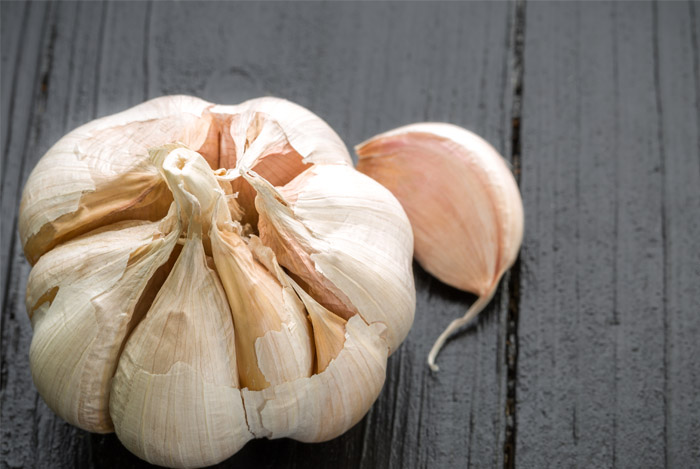 Freshly crushed garlic has potent antibacterial properties, thanks to the presence of a sulfur compound called allicin.
Freshly crushed garlic has potent antibacterial properties, thanks to the presence of a sulfur compound called allicin.
When allicin is digested, it produces sulfenic acid, which reacts with free radicals faster than any other known compound.
Allicin has also been found to be effective at killing a wide range of bacteria, including multi-drug resistant strains of E. coli, often the cause of painful UTI symptoms.
A July 2015 study in India indicates that garlic extract may help treat these drug resistant strains of bacteria, which may be especially beneficial for those with recurrent UTIs.
In the study, 166 bacteria strains were isolated from the urine of people with UTIs. Around 93 of those strains showed a high degree of resistance to antibiotics.
However, an impressive 82% of the antibiotic resistant strains were treatable with garlic extract.
To cure a urinary tract infection with garlic, add it liberally to salads, soups and stir-fries, or steep garlic cloves in warm water for a stinky, but healing tea.
Remember, that to release the allicin from a garlic clove, you must crush, chop or chew the clove first. For most antibacterial benefits, eat the garlic raw.
Cinnamon
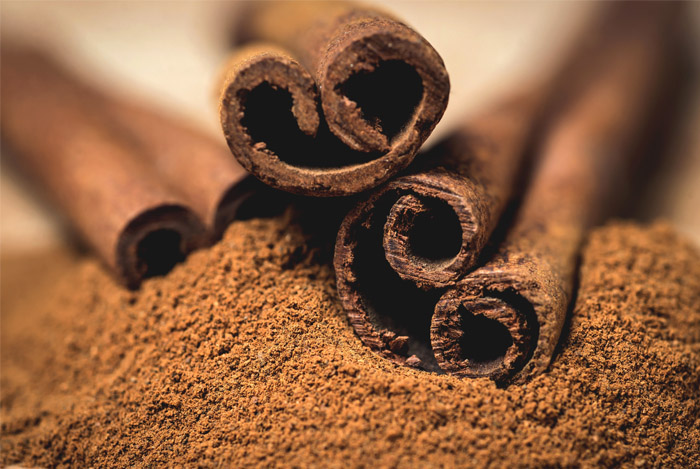 For a little spice, cinnamon packs a huge punch. When compared with 25 other herbs and spices, cinnamon beat them all, hands down, in terms of antioxidant activity.
For a little spice, cinnamon packs a huge punch. When compared with 25 other herbs and spices, cinnamon beat them all, hands down, in terms of antioxidant activity.
As we know, antioxidants help quell inflammation, so cinnamon may kill some of the pain you’re experiencing.
And, even small amounts of cinnamon have been shown to kill several types of bacteria including E. coli, the bacteria responsible for 90% of UTIs.
A 2010 study in the Journal of Urology looked at cinnamaldehyde, a compound in cinnamon, as a possible antibacterial agent against catheter-induced urinary tract infections caused by E. coli.
Cinnamaldehyde was found to have prevented the growth of E. coli and had no toxic effects on bladder cells.
Sprinkle cinnamon liberally on oatmeal, chopped fruit, yogurt, smoothies and even add cinnamon sticks to your herbal teas.
Green Tea
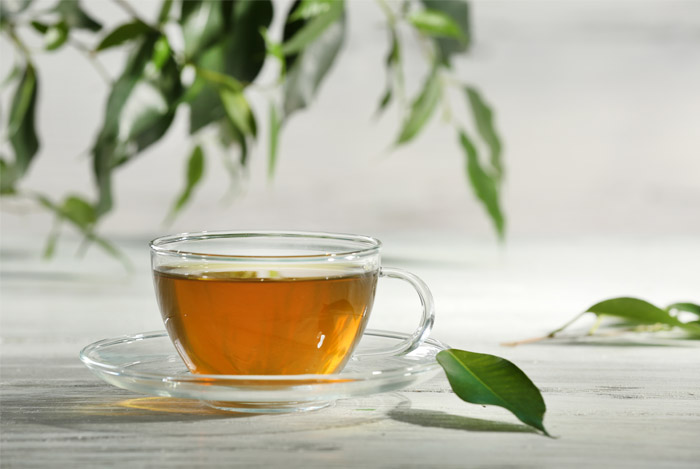 A soothing cup of green tea may help with the symptoms of a UTI.
A soothing cup of green tea may help with the symptoms of a UTI.
For one thing, it’s a good replacement for plain old water, especially when you get sick of drinking nothing but unflavored H2O in a bid to flush out bad bacteria.
A component in green tea (EGC) has been shown to have antimicrobial effects on E. coli. What’s more, our bodies also excrete this EGC through our urine in high enough concentrations to kill this bacteria in our urinary tract.
Although not a problem for most, some people find that caffeine irritates the bladder. Green tea contains 24 to 45 mg of caffeine per 8 oz serving (whereas brewed coffee contains 95 to 200 mg).
If you’re particularly sensitive to caffeine or find green tea is worsening your UTI symptoms, stick with water.
Apple Cider Vinegar
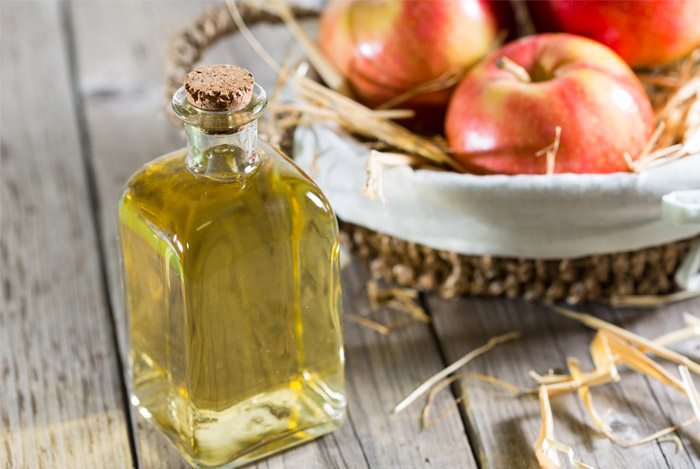 Apple cider vinegar can help kill E. coli, and so can play a role in preventing up to nine out of every ten UTIs. Drinking a spoon in a glass of water every day may help you stave off another infection.
Apple cider vinegar can help kill E. coli, and so can play a role in preventing up to nine out of every ten UTIs. Drinking a spoon in a glass of water every day may help you stave off another infection.
However, Livestrong warns that if you are already suffering with one, then it’s best avoided as it may just irritate the urinary tract further.
Baking Soda
While baking soda won’t cure a urinary tract infection, it can temporarily relieve the burning pain and discomfort you feel. This is because baking soda is alkaline, which can counteract the acidity of your urine.
Kidney Health Australia recommends taking a commercial urinary alkalizer or a teaspoon of baking soda (bicarbonate of soda) in water.
However, it’s important to use this only as an occasional treatment.
Firstly, it won’t kill the infection, it just masks the pain. Secondly, excessive amounts of baking soda can cause serious electrolyte and acid/base imbalances.
Supplements
In addition to the foods I’ve listed, the following two supplements may help you kick UTIs to the curb.
Probiotics
 Probiotics are friendly bugs that live in our gut.
Probiotics are friendly bugs that live in our gut.
They help with digestion, nutrient absorption and play a supportive role in our overall health by maintaining a healthy balance of ‘good’ and ‘bad’ bacteria in our bodies.
Because of their ability to kill bad bacteria, there is strong scientific evidence to support the use of probiotics for urinary tract infections, says the University of Maryland Medical Center.
Studies have shown probiotics to be an effective and safe way of preventing recurrent UTIs too.
While probiotics are commonly taken as supplements, ‘live’ foods may be even more potent. If you’re suffering with painful urination from an infection, try eating more natural yogurt, sauerkraut, kefir, kimchi, and kombucha.
D-Mannose
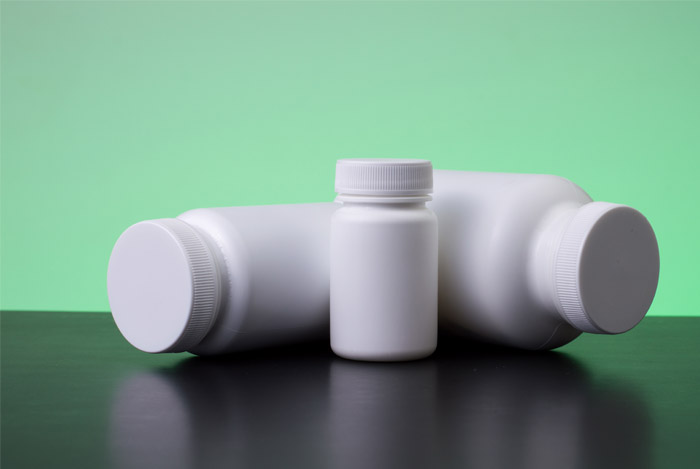 D-mannose is a little known supplement, that Chris Kresser claims is “by far the most effective supplement for both treatment and prevention of UTIs”.
D-mannose is a little known supplement, that Chris Kresser claims is “by far the most effective supplement for both treatment and prevention of UTIs”.
It’s a naturally occurring sugar found in blueberries and cranberries, and may explain why these two little berries are just so effective at clearing up urinary tract conditions.
It works by attaching itself to the E. coli bacteria, preventing them from sticking to the walls of the urinary tract. By drinking plenty of liquids, you can then flush the bacteria from the body.
After taking D-mannose, symptoms usually resolve within 48 hours and, best of all, there are practically no side effects.
In a study, over 300 women who suffered recurrent UTIs were treated daily with either 2 g of D-mannose, 50 mg of an antibiotic, or no treatment.
After six months of treatment, only 14% of those taking D-mannose had a recurrent infection, compared to 20% in the antibiotic group.
It’s a small but important difference, given both the immediate side-effects, and the longer-term health effects associated with antibiotics.
The no treatment group suffered the highest level of recurrent infections at 60%.
What to Avoid
If you don’t want to be struck down with another bout of burning pain every time you need to pass urine, then steer clear of the following foods.
Sugar
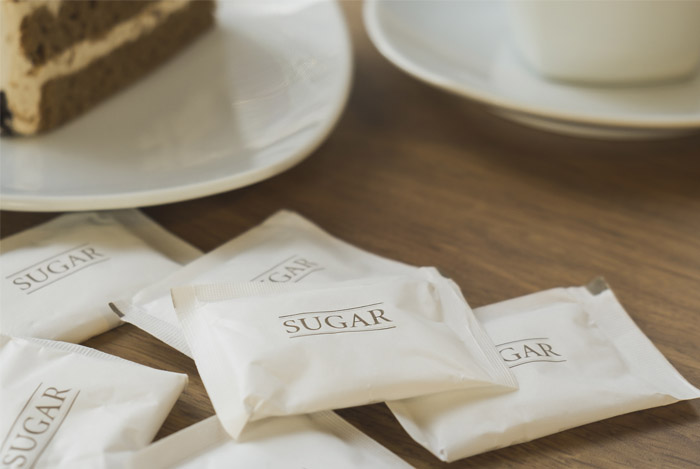 If I could tell you to just avoid one type of food to beat UTIs it would be sugar. This includes refined grains, such as white bread and pastries, which quickly break down in the body into sugar.
If I could tell you to just avoid one type of food to beat UTIs it would be sugar. This includes refined grains, such as white bread and pastries, which quickly break down in the body into sugar.
The huge effect of sugar on UTIs shouldn’t be ignored.
Why?
Sugar feeds the bacteria that is infecting your urinary tract and bladder. Stop feeding it and it can’t take over.
Furthermore, Dr Leigh Erin Connealy explains that the Standard American Diet’s level of sugar and refined grains encourages acidosis – an unhealthy imbalance in the body’s pH levels.
Long-term acidosis can cause inflammation of the kidneys, a factor that could play a role in UTIs.
Coffee
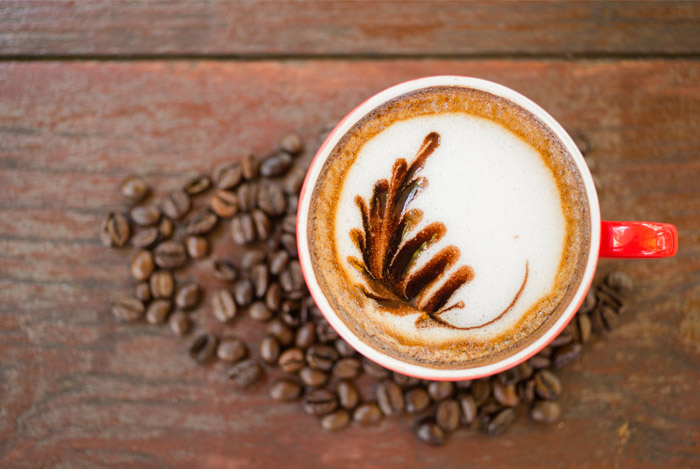 While coffee has plenty of health benefits, it’s not so good for those with bladder problems. Caffeine is a bladder stimulant, known to cause bladder irritation and worsen urinary tract symptoms.
While coffee has plenty of health benefits, it’s not so good for those with bladder problems. Caffeine is a bladder stimulant, known to cause bladder irritation and worsen urinary tract symptoms.
Researchers at the University of Alabama Medical School found that women who drink three or more coffees a day have a 70% higher chance of having a bladder problem.
A study of people with chronic inflammation of the bladder found that 97% of those experienced worse symptoms after certain foods and drinks, one of which was coffee.
Alcohol
 Alcohol is another drink you need to avoid if you have a UTI.
Alcohol is another drink you need to avoid if you have a UTI.
It stimulates the bladder and acts as a natural diuretic, causing frequent and urgent urination symptoms. Given that these symptoms are already pretty bad when you have a UTI, you don’t want to make them worse.
Plus, alcohol leads to dehydration, causing your urine to become more concentrated with salts that irritate the bladder and worsen pain.
Don’t forget that alcohol contains high levels of sugar, which of course only feeds the pain-causing bacteria.
Sodas
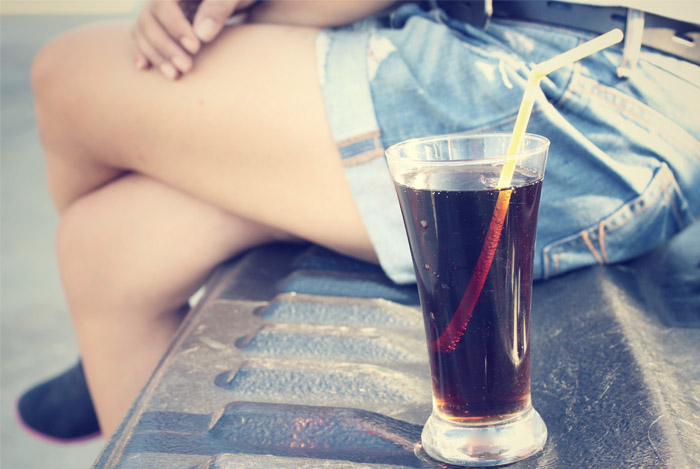 As I mentioned here, sodas aren’t in the least bit good for you.
As I mentioned here, sodas aren’t in the least bit good for you.
If you’re prone to UTIs and bladder infections, then it’s just another reason to avoid these crazily unhealthy drinks.
Sodas generally contain caffeine and are loaded with sugar. They also contain phosphates, which irritate the urinary tract and cause pain and bladder spasms.
Overall…
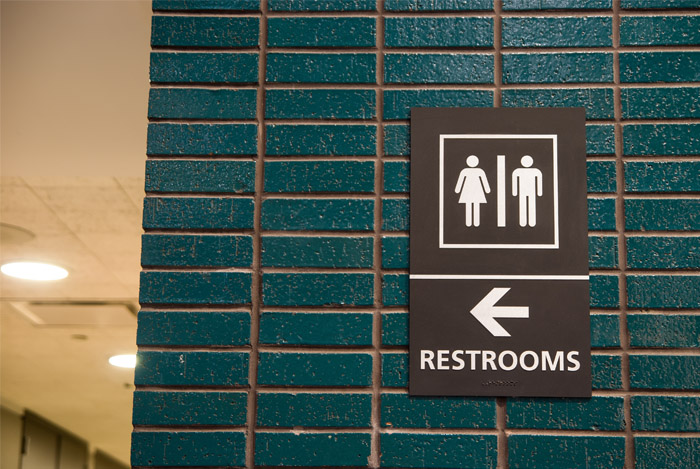 Like most illnesses, UTIs are easier to prevent than they are to cure. If you already have one, you should consult your doctor, as antibiotics may be necessary.
Like most illnesses, UTIs are easier to prevent than they are to cure. If you already have one, you should consult your doctor, as antibiotics may be necessary.
Prevent future infections by drinking plenty of water, eating vitamin and mineral rich foods, and healthful herbs and spices.
I can’t say this enough – cut out the sugar, simple carbohydrates, and sodas.
If you do all this, and ensure you stick to a balanced diet, you should soon be enjoying a life free of urinary tract infections.
Do you suffer from painful UTIs? What dietary tips and tricks do you use to prevent further infections?
The post How to Beat Urinary Tract Infections (UTIs) through Diet appeared first on Nutrition Secrets.
http://www.nutritionsecrets.com/urinary-tract-infection/
No comments:
Post a Comment